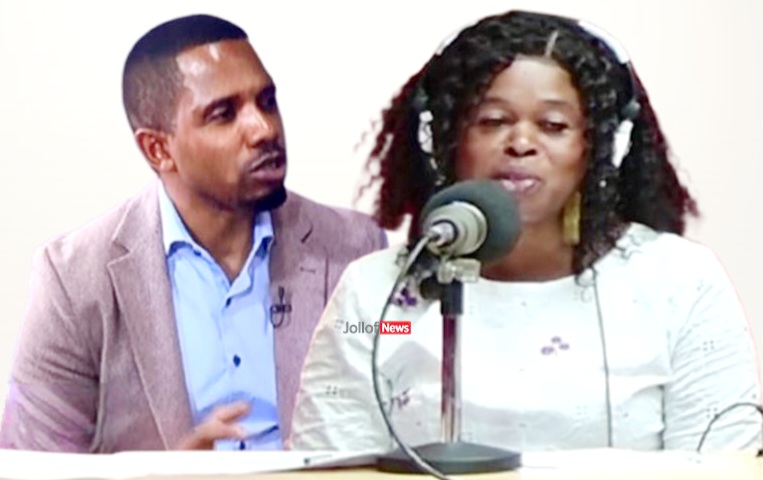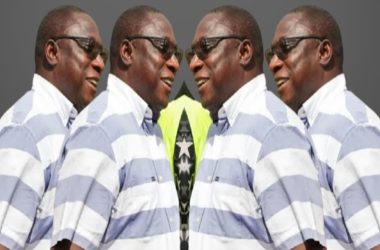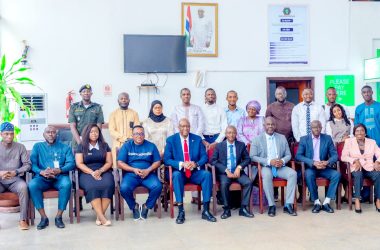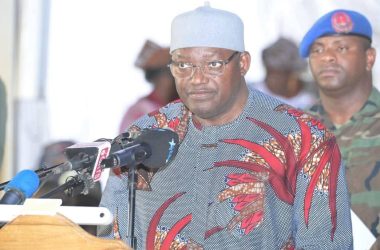Veteran broadcaster Haddy Badjie earlier this week engaged the information minister Dr. Ismaila Ceesay in a frank discussion around the ongoing uncertainty in the cement market due to the Gambia government’s 180% tariffs on a bag of imported cement.
At the time of the mid-morning discussion on GRTS, the country was experiencing an excruciating cement shortage, which was preceded by a cement price hike by Jah Oil cement factory.
Dr. Ceesay was a guest on a phone-in programme on the national broadcaster when a listener called from Bansang to lament that Gambians in that part of the country were grappling with hefty cement prices with a bag sold at D480 in Bansang.
Excerpts:
HADDY BADJIE: Dr. that caller has said something important vis-à-vis cement because it’s not only Bansang, but it’s across the country because there is a shortage, a scarcity.
Dr. CEESAY: What happened is that you have to understand that we are currently in a challenging global economic environment. The tariffs that Trump introduced have caused issues with even raw materials. We don’t produce the raw materials of cement here and we don’t also produce cement here in large quantities. But whatever the case may be, cement is available. Jah Oil has brought in cement and they are offloading the cargo and soon, cement will be available. The government has noted the challenges and we came up with measures to prevent a recurrence of the situation. We are also engaging to ensure cement is never scarce and prices are reverted to their previous levels.
HADDY BADJIE: But what Gambians can’t understand is this tariffs issue, but it has nothing to do with goods that are coming to The Gambia.
Dr. CEESAY: Let’s say cement is from Turkey, Trump put tariffs on Turkey, put tariffs on Vietnam, put tariffs on Tajikistan, put tariffs on China and these are the countries that sell us cement. It affects their markets.
HADDY BADJIE: But it has nothing to do with goods that are coming to Gambia.
Dr. CEESAY: No, no, those goods are coming from those countries to The Gambia and if those countries are affected, Gambia is indirectly affected. This is what you should understand. Let’s say for example, we are here but we get oranges from Turkey and other countries supply Turkey raw materials. So if Trump imposes tariffs on those countries, the way it will affect them is how it will affect The Gambia indirectly. That is the problem. But right now, cement has arrived. I think 53 metric tons, if I am not wrong. That can serve and we will make sure this never recur. The government took the matter very seriously because cement is a critical commodity because right now, our construction sector is booming, we are building bridges and roads and people are constructing. So, cement cannot be scarce in The Gambia. We cannot allow it and this is why government took the matter very seriously. We will take measures to prevent it.

HADDY BADJIE: Yes, measures are important but the most important measure is to liberalize the cement market because certain individuals are given monopoly to import cement.
Dr. CEESAY: There is no monopoly of cement. People are free to bring in cement.
HADDY BADJIE: But the tariff is just too much on them.
Dr. CEESAY: No. What happened is that government realized that it was losing a lot of revenue from the cement importers. We were not generating anything and imagine, we have four factories here and they are paying taxes and employed lot of Gambians. And you are leaving them to compete with those who don’t pay taxes? So, the government must take a step. The government was losing lot of revenue. The government cannot continue to lose that revenue and this is the right time to…We did not restrict anybody. If you want, you can import. Many a time, they[cement importers] did not pay what they were supposed to pay. Any policy decision that we take is for the interest of the people. If we realize that it’s not in our interest, we must take a step. We will take a step that will ensure cement is never scarce in The Gambia.





